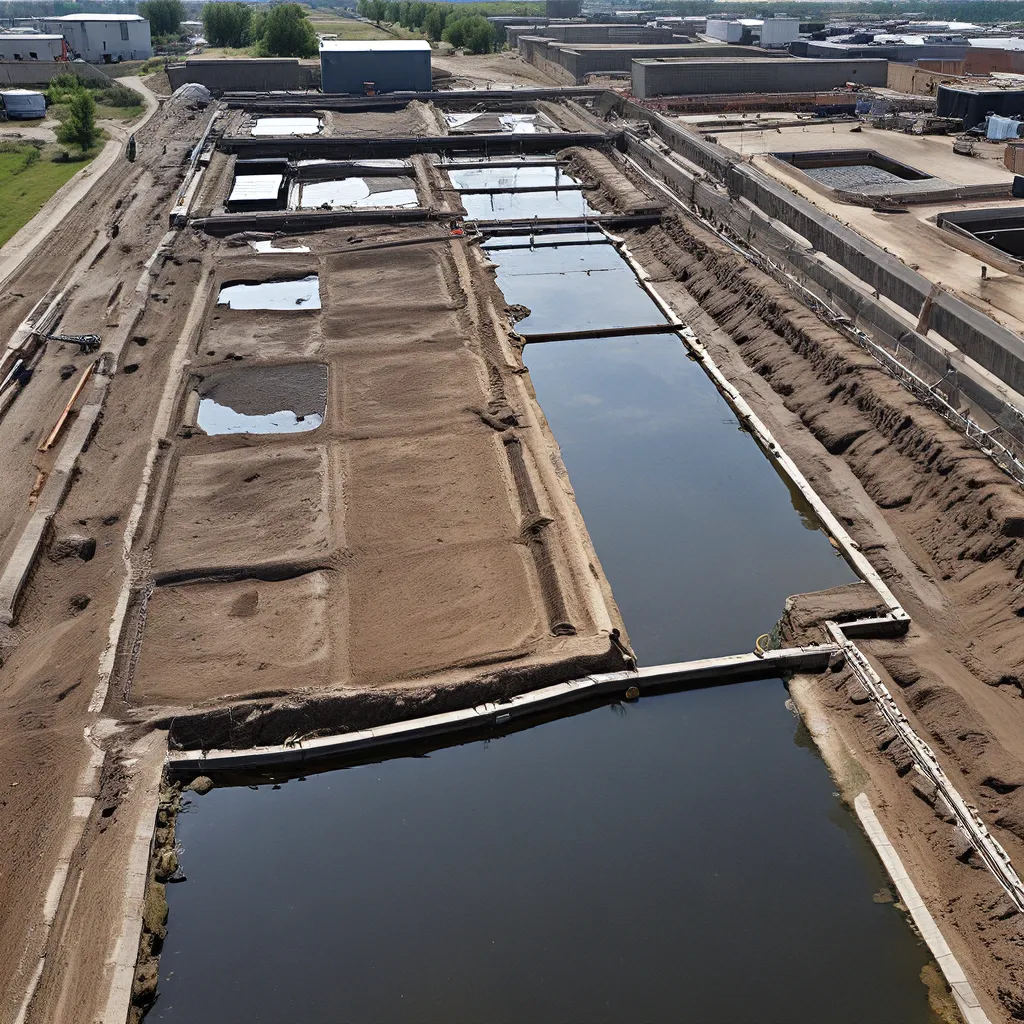
Unlocking the Potential of Wastewater: A Sustainable Approach
As a sustainability enthusiast, I’ve always been fascinated by the potential of wastewater treatment to drive meaningful change in our cities. In a world where urbanization is rapidly transforming the landscape, the way we manage our water resources has become increasingly crucial. It’s not just about efficiently disposing of waste – it’s about unlocking the hidden value that lies within those seemingly mundane streams of water.
Let me take you on a journey through the fascinating world of wastewater treatment and resource recovery. It’s a realm where science, technology, and environmental stewardship converge, shaping the future of our cities and the planet as a whole.
The Wastewater Transformation: From Burden to Bounty
Traditionally, wastewater was viewed as a burden – something to be removed from our communities as quickly and efficiently as possible. But as our understanding of the circular economy has evolved, we’ve come to realize that wastewater is a treasure trove of valuable resources, just waiting to be reclaimed and repurposed.
Recent studies have shown that wastewater can be a sustainable source of energy, nutrients, and even clean water. By shifting our perspective and embracing innovative wastewater treatment technologies, we can transform this once-neglected resource into a driver of sustainable urbanization.
Resource Recovery: Turning Waste into Wealth
At the heart of this transformation lies the concept of resource recovery. Through advanced wastewater treatment processes, we can extract and repurpose a wide range of valuable materials, including:
- Energy: Biogas derived from the anaerobic digestion of organic matter in wastewater can be used to generate renewable electricity or fuel.
- Nutrients: Nutrients like nitrogen and phosphorus can be recovered and used as fertilizers for agricultural purposes, closing the loop on nutrient cycling.
- Water: Treated wastewater can be recycled and reused for various applications, such as irrigation, industrial processes, or even potable water in some cases.
Research has shown that the recovery and repurposing of these resources can not only reduce the environmental impact of wastewater treatment but also generate significant economic benefits for municipalities and communities.
The Sustainable Urbanization Imperative
As our cities continue to grow and expand, the need for sustainable urbanization has become increasingly pressing. Wastewater treatment and resource recovery play a crucial role in this transformation, helping us to:
- Conserve natural resources: By recycling water, energy, and nutrients, we can reduce our dependence on finite resources and promote a more circular economy.
- Minimize environmental impact: Treating and reusing wastewater can help to reduce the discharge of pollutants into our waterways, protecting fragile ecosystems.
- Enhance resilience: Diversifying our water sources and reducing the strain on freshwater supplies can make our cities more resilient to climate change and other environmental challenges.
Emerging technologies in the field of wastewater treatment are making it increasingly feasible to achieve these goals, paving the way for a more sustainable urban future.
Embracing the Future of Wastewater Treatment
As I dive deeper into this topic, I’m continuously amazed by the innovative solutions being developed to optimize wastewater treatment and resource recovery. From advanced membrane filtration to nutrient extraction and energy generation, the possibilities are truly endless.
One of the most exciting developments in this field is the integration of artificial intelligence (AI) and machine learning into wastewater treatment processes. By leveraging real-time data and predictive analytics, we can optimize plant operations, anticipate maintenance needs, and even identify emerging contaminants before they become a problem.
Service providers like Alpha Wastewater are at the forefront of this revolution, offering state-of-the-art treatment solutions that maximize resource recovery and minimize environmental impact. Their commitment to innovation and sustainability is truly inspiring, and I can’t wait to see what the future holds.
The Power of Collaboration: Unlocking Sustainable Solutions
As exciting as these technological advancements are, I believe that the true power of sustainable wastewater management lies in collaboration. By bringing together policymakers, researchers, engineers, and community stakeholders, we can create holistic, integrated solutions that address the multifaceted challenges of urbanization.
Interdisciplinary partnerships and knowledge-sharing are essential for driving the widespread adoption of resource recovery practices. It’s only by fostering a culture of innovation and cross-pollination that we can unlock the full potential of wastewater treatment to transform our cities and secure a more sustainable future.
Conclusion: A Future of Abundance
As I reflect on this journey, I can’t help but feel a sense of optimism and possibility. The transformation of wastewater from a burden to a bounty is a testament to the ingenuity and resilience of the human spirit.
By embracing the power of wastewater treatment and resource recovery, we can build cities that thrive in harmony with the natural world. It’s a future of abundance, where waste becomes wealth, and sustainability is the driving force behind urban development.
I invite you to join me in this exciting chapter of sustainable urbanization. Together, we can unlock the hidden potential of our wastewater and shape a better tomorrow for generations to come.